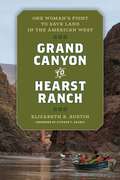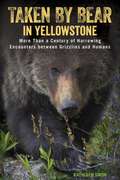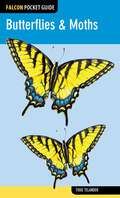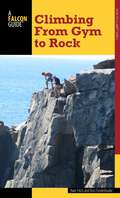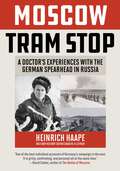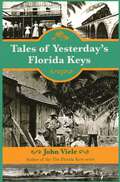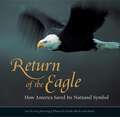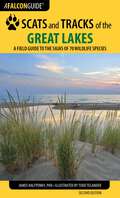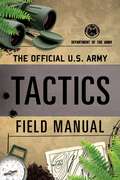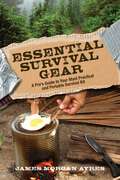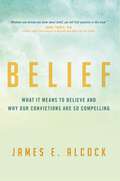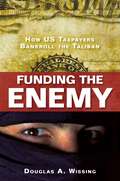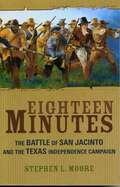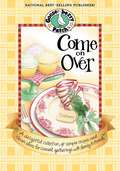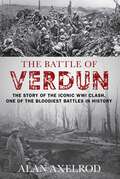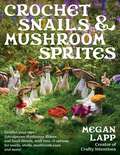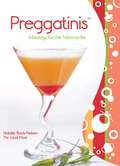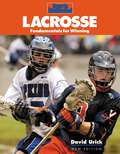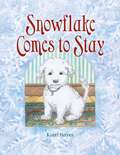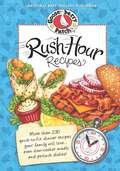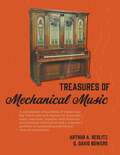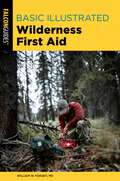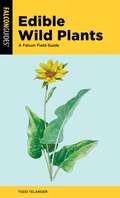- Table View
- List View
Grand Canyon to Hearst Ranch: One Woman's Fight to Save Land in the American West
by Elizabeth AustinFinalist for the 2020 WILLA Literary Award, Creative NonfictionInspired by her first breathtaking trip in the Grand Canyon, Harriet Hunt Burgess dedicated her life to saving land for future generations. Beginning in the 1970s, she persevered through four decades—overcoming daunting obstacles and taking extraordinary risks—to conserve hundreds of thousands of acres of land in the American West.Without Burgess, iconic and irreplaceable landscapes like the Lake Tahoe region and the California coast would be much different today. As Harriet Burgess once explained, &“The land we save is our legacy. It&’s what we give to our children.&” The Grand Canyon was the catalyst for Harriet&’s conservation mission and the spark for Grand Canyon to Hearst Ranch. Author Elizabeth Austin has interwoven her own exhilarating and life-changing dory trip through the depths of the Grand Canyon with the compelling story of Harriet&’s early life and five of her most significant conservation achievements as founder-president of the American Land Conservancy.
Taken by Bear in Yellowstone: A Century of Harrowing Encounters between Grizzlies and Humans
by Kathleen SnowHumans and grizzly bears have been coming into contact in Yellowstone National Park ever since it was founded in 1872. Most of these encounters have ended peacefully, but many have not. In order to most accurately tell the stories of those involved in the more deadly incidents, Kathleen Snow went directly to the source: the National Park Service archives. With help from personnel at park headquarters, Snow has collected more than 100 years&’ worth of hair-raising stories that read like crime scene investigations and provide hard-learned lessons in outdoor safety. A must-read for fans of Death in Yellowstone and anyone fascinated by human-animal interactions.
Butterflies & Moths (Falcon Pocket Guides)
by Todd TelanderButterflies & Moths is an easily accessible field guide to familiar North American butterflies and moths. This is an essential resource for any level of nature explorer, to recognize and name the most common butterflies and moths.
Climbing: From Gym to Rock
by Nate Fitch Ron FunderburkeClimbing: From Gym to Rock is a pocket-size instructional climbing book with the backing of the American Mountain Guides Association (AMGA) that focuses on getting indoor climbers outdoors. The book will feature information on environment and terrain, types of crag, best practices, and more. Photos will be throughout.
Moscow Tram Stop: A Doctor's Experiences with the German Spearhead in Russia
by Heinrich HaapeFirst published in 1957 and out of print for decades, Moscow Tram Stop is a classic of World War II on the Eastern Front. Heinrich Haape was a young doctor drafted into the German Wehrmacht just before the war began. He was with the spearhead of Operation Barbarossa, tasked with taking Moscow, when it invaded the Soviet Union on June 22, 1941. Mere hours into the attack, Haape and his fellow soldiers learned the hard way that the Red Army fought with otherworldly tenacity even in defeat. The rapid advance of the early days slowed during the summer, and Haape&’s division did not begin the final push on Moscow until October. It was a hard slog, plagued first by rain and mud, then by cold and snow. By early December, German forces had reached the gates of the Soviet capital but could press no farther. By winter&’s end, Haape&’s battalion of 800 had been reduced to a mere 28 soldiers. The doctor&’s account is enthrallingly vivid. The drama and excitement never slacken as Haape recounts his experiences from the unique perspective of a doctor, who often had to join in the fighting himself and witnessed the physical and psychological toll of combat.
Tales of Yesterday's Florida Keys
by John VieleA collection of stories of people and events in the Florida Keys extending from the time the Keys were first occupied by humans, through the Second Seminole War, the coming of the Overseas Railway, and finally the opening of the first Overseas Highway in 1927. The tales tell of American Indians, Cubans, Bahamians, New Englanders, and of fishing, turtling, shipwreck salvaging, warring, and of course dealing with heat and mosquitoes. John Viele's three volumes, The Florida Keys, have been Keys bestsellers for years. Now he presents a fascinating new batch of historical vignettes.
Return of the Eagle: How America Saved Its National Symbol
by Greg BreiningThis is the story of how a nation reversed a &“silent spring&” and saved the bald eagle from extinction. This bird of prey was declared the national symbol in 1782 but, by the 1960s, pollution and development had wiped out all but a few dozen. Grassroots movements started, the American consciousness was raised to all environmental threats, and federal laws were passed to keep the eagle population alive. This stunning book of full-color photographs and touching stories chronicles this inspiring success story with awe-inspiring shots of eagles in flight. There is also a one-of-a-kind directory to more than 150 areas in the nation where eagles are likely to be seen in the wild, soaring once again against the blue skies of freedom. This book is a monument to the efforts that combined animal instinct for survival with the power of the human spirit to change the world.
Scats and Tracks of the Great Lakes: A Field Guide to the Signs of 70 Wildlife Species (Scats and Tracks Series)
by James HalfpennySee those animal signs on the trail? Was that footprint left by a fox or a wolf? Was that pile of droppings deposited by a moose, a mouse, or a marten? Scats and Tracks of the Great Lakes will help you determine which mammals, birds, reptiles, and amphibians have passed your way and could still be nearby. Clearly written descriptions and illustrations of scats, tracks, and gait patterns will help you recognize seventy Great Lakes species. An identification key, a glossary of tracking terms, and detailed instructions on how to document your finds are also included here. Easy-to-use scat and track measurements appear on each page, making this book especially field friendly and letting you know if a white tailed ptarmigan, a red fox, or even a black bear has been your way.
The Official U.S. Army Tactics Field Manual
by Department of the ArmyTactics is the art and science of employing all available means to win battles and engagements. Specifically, it comprises the actions taken by a commander to arrange units and activities in relation to each other and the enemy. Filled with diagrams of attack plans, defensive strategies, and troop movements, U.S. Army Tactics Field Manual is the playbook the U.S. Army uses to employ available means to win in combat. This book provides combat-tested concepts and ideas modified to exploit emerging Army and joint capabilities. This book focuses on the organization of forces, minimum essential control measures, and general planning, preparation, and execution considerations for each type and form of combat operation. It is the common reference for all students of the tactical art, both in the field and the Army school system. The Art of Tactics * Common Tactical Concepts and Graphic Control Measures * The Basics of Offense * Movement to Contact * Attack * Exploitation * Pursuit * Basics of Defensive Operations * The Area of Defense * The Mobile Defense * The Retrograde * Security Operations * Reconnaissance Operations * Troop Movement * Relief in Place * Passage of Lines.
Essential Survival Gear: A Pro's Guide to Your Most Practical and Portable Survival Kit
by James Morgan AyresDisasters strike every day, but despite the best laid plans you may find yourself in one with only the clothes on your back and without a well packed first-aid kit. In Essential Survival Gear, J. Morgan Ayres explains in detail what you need to have when a dire emergency occurs, wherever you are, whoever you are. Ayres—a former Green Beret, martial arts master, and wilderness and urban survivalist—explains his four-layer concept (clothing, day bag, backpack, basic equipment and luxuries) and profiles and provides photos of a broad range of gear, with recommendations on what works best in what scenario—from cityscapes to wilderness and everywhere in between—and how to use it.
Finger Lakes: Nature's Beauty
by Den LinnehanThe natural beauty of the Finger Lakes region of New York is captured in these stunning landscape photographs. From thundering waterfalls to early morning mist rising off a still lake, these images evoke the mystery and splendor of this unique geological area that was shaped by glaciers and honed by water. Iridescent rainbows and vivid sunsets combine with shaded woodland glens and fields of phlox to make up this gorgeous photo book that celebrates the majesty of upstate New York in all her many colors.
Belief: What It Means to Believe and Why Our Convictions Are So Compelling
by James E. AlcockAn expert on the psychology of belief examines how our thoughts and feelings, actions and reactions, respond not to the world as it actually is but to the world as we believe it to be. This book explores the psychology of belief - how beliefs are formed, how they are influenced both by internal factors, such as perception, memory, reason, emotion, and prior beliefs, as well as external factors, such as experience, identification with a group, social pressure, and manipulation. It also reveals how vulnerable beliefs are to error, and how they can be held with great confidence even when factually false. The author, a social psychologist who specializes in the psychology of belief, elucidates how the brain and nervous system function to create the perceptions, memories, and emotions that shape belief. He explains how and why distorted perceptions, false memories, and inappropriate emotional reactions that sometimes lead us to embrace false beliefs are natural products of mental functioning. He also shows why it is so difficult to change our beliefs when they collide with contradictions. Covering a wide range -- from self-perception and the perceived validity of everyday experience to paranormal, religious, and even fatal beliefs--the book demonstrates how crucial beliefs are to molding our experience and why they have such a powerful hold on our behavior.
Funding the Enemy: How US Taxpayers Bankroll the Taliban
by Douglas A. WissingWith the vague intention of winning hearts and minds in Afghanistan, the US government has mismanaged billions of development and logistics dollars, bolstered the drug trade, and dumped untold millions into Taliban hands. That is the sobering message of this scathing critique of our war effort in Afghanistan. According to this book, America has already lost the war. While conducting extensive research and fieldwork in Afghanistan's war zones, a drumbeat of off-the-record and offhand remarks pointed the author to one conclusion: "We blew it." The sentiment was even blazoned across a US military fortification, as the author saw at Forward Operating Base Mehtar Lam in insurgency-wracked Laghman Province: "I glanced over at a concrete blast barrier while waiting for a helicopter," Wissing says. "Someone had spray-painted in jagged letters: 'The GAME. You Lost It.'" The author's vivid narrative takes the reader down to ground level in frontline Afghanistan. It draws on the voices of hundreds of combat soldiers, ordinary Afghans, private contractors, aid workers, international consultants, and government officials. From these contacts it became glaringly clear, as the author details, that American taxpayer dollars have been flowing into Taliban coffers, courtesy of scandalously mismanaged US development and counterinsurgency programs, with calamitous military and social consequences. This is the first book to detail the toxic embrace of American policymakers and careerists, Afghan kleptocrats, and the opportunistic Taliban. The result? US taxpayers have been footing the bill for both sides of a disastrous Afghanistan war.
Eighteen Minutes: The Battle of San Jacinto and the Texas Independence Campaign
by Stephen L. MooreIt was the decisive eighteen-minute Battle of San Jacinto where the famous words "Remember the Alamo!" were first shouted. In Eighteen Minutes, Stephen L. Moore describes the momentous battle that established the independent Lone Star Republic. Told largely through the eyes of the participants, the recollections included here are words from over 120 Texan and Mexican soldiers. The book follows General Sam Houston as he takes command of the Texas Volunteers to lead them to victory six weeks after the fall of the Alamo at San Jacinto, the town since known as the birthplace of Texas liberty. The battle and its aftermath are covered in great detail and include the capture of Santa Anna, the "Yellow Rose" controversy, and the death of a woman on the battlefield. Special features include rosters of all Texans involved in the battle, a list of casualties, and the details on other companies involved in the campaign. Eighteen Minutes is a comprehensive history of how revenge for the defeat of the Alamo was at last achieved.
Come On Over
by Gooseberry PatchMake simple meals special and special meals simple...that's what Come on Over is all about! It's filled with recipes and tips for easy, come-as-you-are dining from morning 'til nighttime. Try cooking up some overnight coffee cake, sweet berry popover, spicy buffalo bites, pizza by the scoop, Dutch oven stew, herb biscuits supreme, Cheddar ziti bake, Santa Fe sandwiches, 4-layer cookie bars and red velvet cake. It's loaded with helpful ideas for memorable gatherings too.
The Battle of Verdun
by Alan AxelrodThe Great War ate men, machines, and money without mercy or remission. At the end of 1915, the German army chief of staff, Erich von Falkenhayn, believed he knew how to finally kill the beast and win the war. On Christmas day, 1915, Falkenhayn sent a letter to Kaiser Wilhelm II proposing a campaign to demoralize Britain, whose industrial might and maritime power were the foundation of the alliance against Germany, while also knocking France out of the war. He wrote that the &“strain on France has reached breaking point …. If we succeed in opening the eyes of her people to the fact that in a military sense they have nothing more to hope for, that breaking point would be reached and England&’s best sword knocked out of her hand.&” His plan was to attack a single point the French perceived as so vital that they would be compelled &“to throw in every man they have.&” Falkenhayn concluded: &“If they do so, the forces of France will bleed to death&” or, as he put it later, the &“French army would be bled white.&” Falkenhayn&’s target of choice was Verdun, a place that, throughout virtually all of the history of Europe, had been a fortress. Located within a loop of the Meuse River, it occupied a strategic blocking position in the Meuse River valley. As recently as the Franco-Prussian War of 1871, Verdun had been the last of the French fortified cities to hold out against the German onslaught. After that war, it had been vastly augmented, so that it was now a circle of detached forts surrounding a central citadel. The town of Verdun itself, also fortified, was likewise encircled by forts distributed in a five-mile radius. The combined massive complex guarded not only passage through the river valley region, but also dominated a key railroad junction leading to points south, southwest, west, and north in France. Along with the related, but separate, Battle of the Somme, Verdun was among the most deadly battles in history. To understand this struggle is to understand all of World War I, including the principal stated motive of Woodrow Wilson for bringing the United States into the &“European War&” in April 1917. For him, Verdun proved both France&’s determination to win at all costs and the likelihood that, without help, it would be defeated nevertheless. The unparalleled barbarity of Verdun, a product of the Old World, convinced the American president that only the principal nation of the New World could finally alter the grim course of human destiny. While many, both in 1916 and in the decades that followed, saw Verdun as a bloody monument to the inescapable futility of war, Wilson saw in it a hope for fighting what he would call a &“war to end all wars.&”
Crochet Snails and Mushroom Sprites
by Megan LappJump into this Cottagecore Collection Full of Snail Steeds and Mushroom Riders! Mushroom Sprites and Snails are a delightful pairing, offering endless possibilities for crafting magical creatures. With Mushroom Sprites available in various sizes, limb options, and cap styles, and Snails in small, medium, and giant sizes with round or pointed shells, this book provides everything you need to create a whimsical duo. As a bonus, you'll find instructions for leashes, reins, and saddles that allow the Mushroom Sprites to take their Snails on adventures through meadows and forests. Patterns are accessible for all skill levels, with simpler mushroom shapes for beginners and intricate spiraling shells and colorwork for more advanced crafters. All patterns include detailed photos so you can easily follow the instructions to create enchanting amigurumi. Use the included photo galleries and planning sheets to design your unique creatures and track your progress, and refer to the Glossary of Terms and Stitches for helpful guidance along the way. You'll soon be enjoying the company of a whole fairy ring of Mushroom Sprites and their Snail companions!
Fairies 1, 2, 3
by Liza Gardner WalshHow many baby fairies do you see? Try to keep count as they go through the day and more and more baby fairies appear to join in the fun.
Preggatinis™: Mixology for the Mom-to-Be
by Natalie BovisThings move quickly in the cocktail fast lane—but slow to a crawl when pregnancy kicks in. Right? Wrong! Even when sporting a &“baby bump,&” modern moms can stay in the social swing of things with Preggatinis, featuring lip-smacking, liquorless libations designed by master mixologist Natalie Bovis-Nelsen, aka &“The Liquid Muse.&”Within these pages are 75 original Preggatini recipes highlighting fresh juices, herbs, and garnishes as well as ideas for Preggatini Parties—a modern spin on the humdrum baby shower. Organized by pregnancy stages and symptoms, this lavishly illustrated, pocket-sized, virtually intoxicating guide also offers quotes from famous moms and sidebars about pregnancy and health and such options as &“De-virginize for Dad&”—making these drinks applicable to all. Includes a recipe exclusively provided by Celebrity Chef Michel Richard, recipient of the 2007 Outstanding Chef James Beard award, author of Happy in the Kitchen, and owner of the legendary Citronelle restaurant in Washington, DC.
Lacrosse: Fundamentals for Winning
by David UrickEight-time national championship coach David Urick shows players and coaches the pathways to lacrosse success!
Snowflake Comes to Stay
by Karel HayesThis is the charming and original tale of author Harriet Harrington, who lives alone in a small house in the woods, and prefers it that way. Her persistent friend Monique, however, believes Harriet needs a friend. Monique breeds puppies and she will not take no for an answer. So, a small Bichon Frise puppy named Snowflake comes to live with Harriet and Harriet's life will never be the same. this story of an independent woman who grows to love something she never wanted will enchant children and adults alike.
Rush-Hour Recipes: Over 230 Quick to Fix Dinner RecipesYour Family Will Love...Even Slow-Cooker Meals and Potluck Dishes!
by Gooseberry PatchChallenged to serve up satisfying, budget-friendly meals on busy weeknights? You're in luck...Rush-Hour Recipes is jam-packed with 230 yummy, quick & easy dinner recipes everyone will enjoy.You'll find speedy 5-Ingredient Favorites like Bacon & Cheddar Chicken and Melinda's Mexican Manicotti, plus Virgil's Veggie Fettuccine, Deep-Dish Skillet Pizza and other tasty One-Dish Dinners. On chilly days, warm 'em up with recipes from Soup's On! like Tom's Chili Con Carne and Hearty Healthy Minestrone. Slow-cooker recipes like Beef Tips & Noodles and Easy Cheesy Enchiladas can't be beat for cook-all-day convenience. We've even included easy crowd-pleasers like Italian Hamburger Mac, Luau Baked Beans and Old-Fashioned Butterscotch Bars...they make extra-large servings so they're perfect to share with friends or tote to a last-minute potluck or bake sale.Many dishes can be prepared in 30 minutes or less, using familiar pantry ingredients. This is sure to become one cookbook you'll turn to again & again! Hardcover, 224 pages. (9-1/4" x 6-1/2")
Treasures of Mechanical Music
by Arthur A. Reblitz Q. David BowersThis book contains over four hundred fifty tuning scales, tracker scales and key frame layouts for player and reproducing pianos, coin pianos and orchestrions, music boxes, table-top organettes, reed, pipe, and electronic organs, barrel organs and various other miscellaneous mechanical musical instruments.In addition to the six hundred fifty pictures and illustrations, there are capsule histories of many of the companies which produced these instruments on both sides of the Atlantic Ocean.There are numerous informative articles on such subjects as arranging piano rolls, how to decode an unknown scale, how "nickelodeon" rolls were originally made, selecting the type of roll to be used for a new orchestrion, arranging music for barrel organs, tuning antique instruments, how rolls are perforated and detailed pictorial tours of both the QRS and Play-Rite Music Roll factories as they manufactured rolls in the early 1980s.There's a good bit of information on player pipe organs, and for the carousel buffs, a fascinating collection of pictures of Charles Looff, the carousel builder, and many of the fine machines he made—all of which were fitted with beautiful mechanical organs.
Basic Illustrated Wilderness First Aid
by William Forgey M.D.The new Basic Illustrated books are information-packed tools in a heavily illustrated, richly designed, contemporary four-color format. Written for the novice but great as a handy reference for the veteran, these highly illustrated guides distill years of knowledge into affordable and portable packages. Whether you're planning a trip or thumbing for facts in the field, Basic Illustrated books show you what you need to know.Discover how to:Assemble an outdoor first-aid kit of essential itemsSoothe bites and stingsDeal with hot and cold injuriesWrap sprains, fractures, and dislocated jointsHandle backcountry emergencies until professional medical help arrives
Edible Wild Plants: A Falcon Field Guide
by Todd TelanderFully revised and updated, Edible Wild Plants highlights ninety of the most common and sought-after edible plant species in North America. Detailed illustrations and descriptions make it easy to identify plants in your backyard and beyond. Organized by family for easy identification, this is the essential source when you&’re out in the field.
